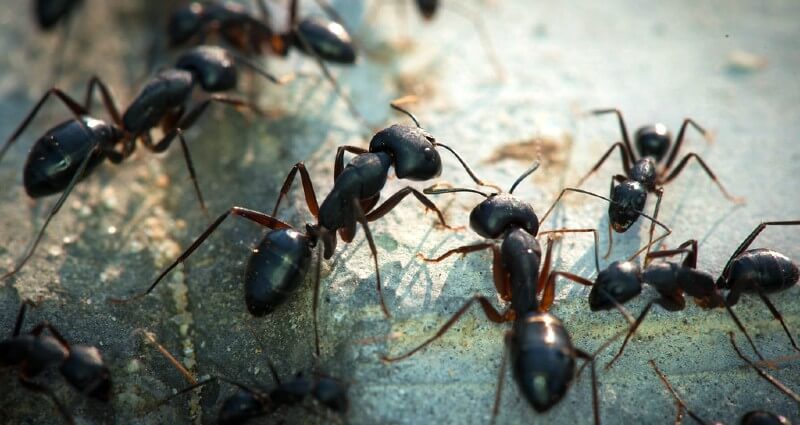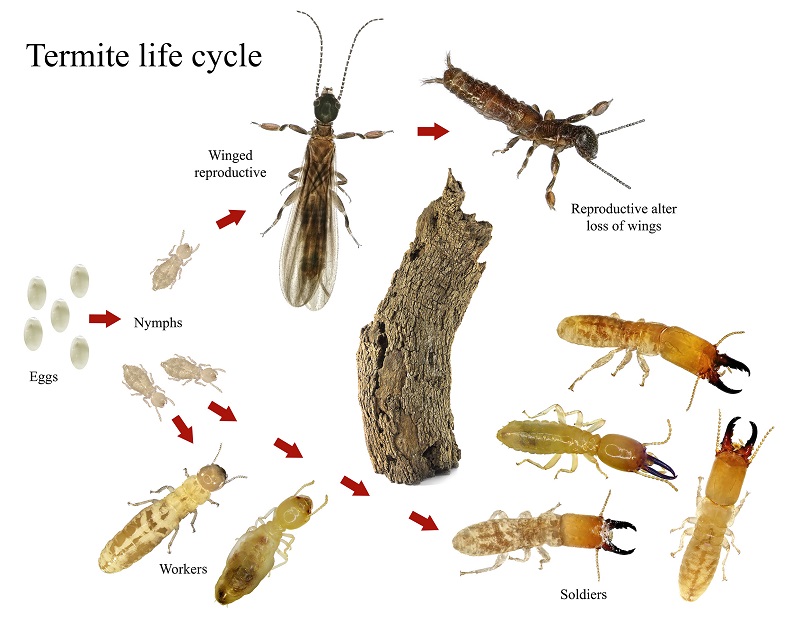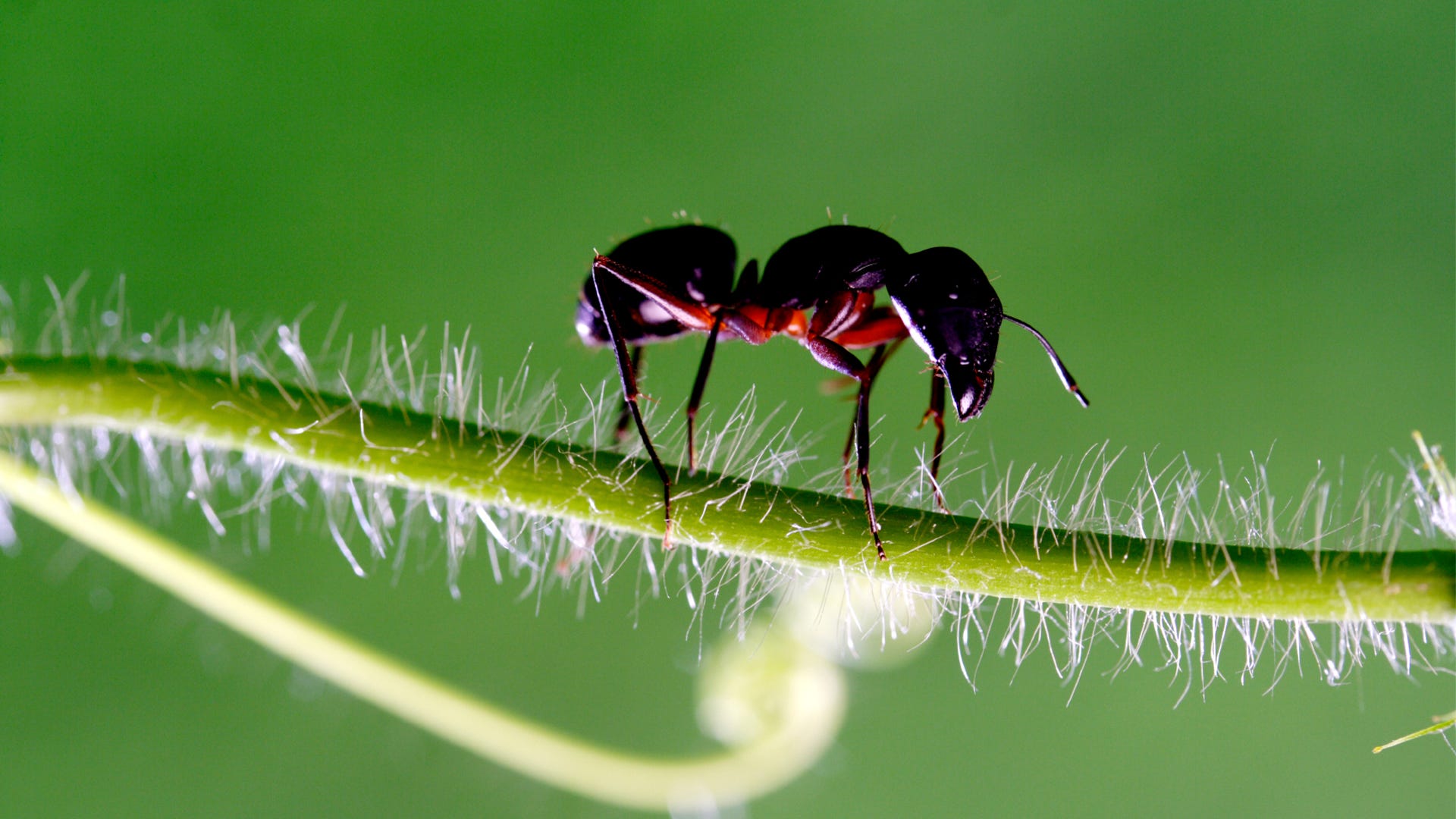Top-Rated Termite Control Services: Ensure Long-Term Protection for Your Residential or commercial property
Top-Rated Termite Control Services: Ensure Long-Term Protection for Your Residential or commercial property
Blog Article
Ecological Impact of Bug Control: Balancing Performance With Sustainability
The environmental influence of insect control is an important concern that requires a fragile equilibrium between achieving effectiveness in making certain and taking care of pests sustainability of our environments. As we make every effort to protect our crops, homes, and health from the hazards postured by pests, the techniques we utilize can inadvertently hurt the setting. From making use of unsafe chemicals that permeate right into our soil and water to the unplanned consequences on non-target types, the consequences of traditional bug control methods are far-ranging. There are emerging approaches that offer hope for a much more lasting method to pest monitoring. These options not only aim to address the immediate pest problems yet likewise think about the long-lasting health of our planet.
Hazardous Chemicals in Parasite Control
The application of hazardous chemicals in insect control positions significant environmental and health risks that warrant careful consideration and mitigation techniques. Pesticides, insecticides, and herbicides are generally utilized to eradicate pests, however their widespread application can lead to unintended consequences. These chemicals can pollute dirt, water resources, and the air, impacting not just the targeted parasites however also useful pests, wildlife, and humans.

To resolve these threats, incorporated parasite monitoring (IPM) strategies are being advertised as a much more lasting option. IPM includes a combination of techniques such as biological control, habitat adjustment, and the targeted use of chemicals as a last resort (ant control monroe nc). By adopting an alternative method to pest control, we can reduce the environmental and health and wellness effects related to harmful chemicals while successfully taking care of pest populations
Effect On Non-Target Types
Taking into consideration the unplanned effects of insect control methods, the influence on non-target types is an important element that requires thorough evaluation. While bug control procedures intend to target specific bugs, other microorganisms in the environment may be accidentally affected. Non-target varieties, including valuable bugs, birds, creatures, and also plants, can suffer straight or indirect damage from chemical applications or biological control methods.
Chemicals can have deadly or sub-lethal impacts on non-target species. Insecticides created to battle a certain bug pest may hurt pollinators like or all-natural killers such as ladybugs. Additionally, chemical residues can accumulate in the environment, impacting non-target microorganisms over time. Likewise, organic control agents, if not species-specific, can posture risks to unexpected targets, interrupting the environmental balance.
To mitigate the effect on non-target species, incorporated insect management (IPM) approaches that highlight an all natural strategy to pest control are recommended. These methods prioritize the use of eco-friendly methods, decreasing injury to helpful microorganisms while effectively managing pest populations. Conducting thorough risk analyses and checking the results of parasite control efforts are necessary actions in safeguarding non-target species and advertising general environment wellness.
Soil and Water Contamination
Unexpected ecological repercussions of insect control methods extend beyond impacting non-target types, with substantial implications for dirt and water contamination - ant control services. Chemicals, herbicides, and chemical plant foods made use of in pest control can leach into the soil and infect groundwater, positioning a danger to both earthbound and aquatic environments.
Water contamination is another important issue related to bug control techniques. Runoff from agricultural areas treated with chemicals can lug these chemicals into neighboring water bodies, impacting water organisms and water top quality. Pollutants in water resources can have far-reaching consequences, influencing not just marine life but also human health with the intake of infected water or water organisms. To minimize soil and water contamination from insect control tasks, incorporated parasite administration strategies that prioritize sustainability and lessen chemical inputs are important.
Air Pollution From Chemical Usage
Exposure to air-borne chemicals throughout farming applications postures a significant concern for air pollution control measures. When pesticides are sprayed onto crops, they can volatilize into the air and kind unstable organic compounds (VOCs) and various other airborne toxins. These chemicals can contribute to the development of ground-level ozone, a significant component of smog that can have detrimental results on human health, crop ant control clemmons nc productivity, and overall air quality. Furthermore, pesticide drift, where chemicals are brought by the wind to unintended areas, can cause the contamination of nearby ecosystems and water bodies.

Approaches for Lasting Pest Control
In the realm of agricultural practices, carrying out sustainable pest control methods is vital for preserving ecological equilibrium and guarding plant yields. Lasting insect control stresses using eco-friendly methods to manage bug populaces effectively while decreasing damage to non-target organisms and communities. Integrated Bug Monitoring (IPM) is an extensively taken on approach that combines biological, cultural, physical, and chemical control techniques to accomplish long-lasting insect monitoring remedies.
One trick method in sustainable bug control is promoting biodiversity within agroecosystems. By boosting natural adversaries of pests, such as predators and parasitoids, farmers can minimize the demand for synthetic pesticides. Plant rotation and diversification are also effective techniques to interrupt pest life process and develop much less desirable problems for bugs to flourish. Additionally, utilizing pest-resistant plant selections and using methods like catch chopping can assist reduce pest stress without depending heavily on chemical treatments. Eventually, by incorporating these lasting insect control strategies, farmers can attain a balance in between pest administration effectiveness and ecological stewardship.
Final Thought
To conclude, the environmental effect of bug control approaches have to be thoroughly taken into consideration to balance performance with sustainability. Damaging chemicals used in parasite control can bring about soil and water contamination, air contamination, and damage non-target types - ant control. It is important to implement sustainable parasite control strategies to reduce these negative impacts on the atmosphere and advertise a healthier environment for future generations
By embracing an all natural approach to pest control, we can reduce the environmental and health and wellness influences associated with harmful chemicals while efficiently handling pest populations.

To reduce the air contamination created by pesticide use, it is essential to take on incorporated pest monitoring approaches that focus on the usage of non-chemical parasite control approaches, such as crop rotation, natural killers, and immune crop ranges. Sustainable parasite control stresses the use of eco pleasant methods to manage pest populations efficiently while reducing harm to non-target organisms and ecological communities. Integrated Insect Administration (IPM) is an extensively embraced method that incorporates organic, social, physical, and chemical control approaches to achieve lasting parasite monitoring services.
Report this page